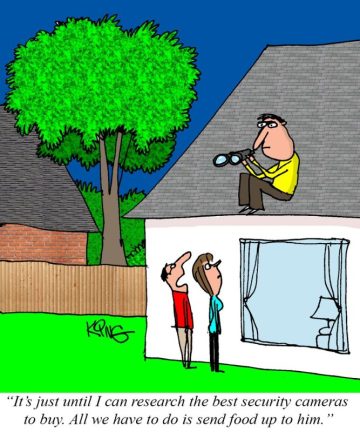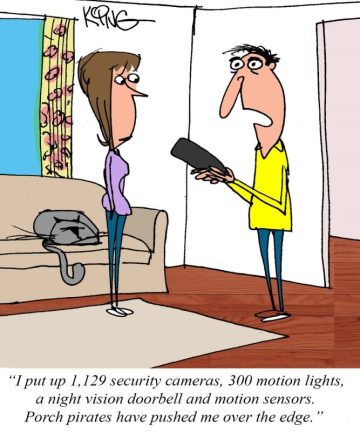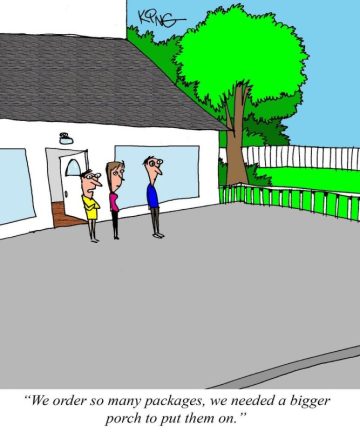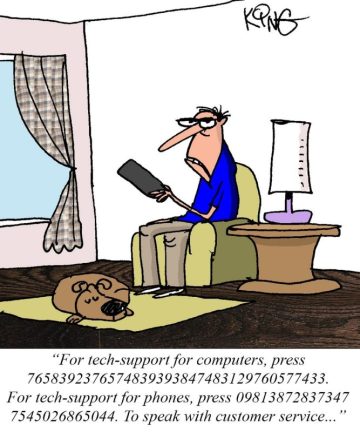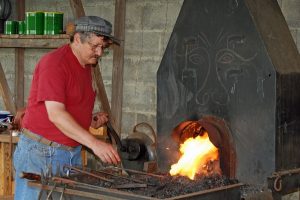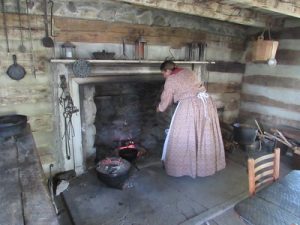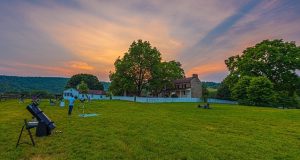State News
More School Districts Leave Virginia School Board Association
A handful of Virginia school boards are exiting the Virginia School Board Association, the longest-running organization dedicated to supporting school boards in the commonwealth, over claims that it has failed to meet their needs and doesn’t align with their conservative values.
Gina Patterson, executive director of VSBA, established in 1906, said she would not comment on the claims made by the few boards but instead responded that the association’s decisions are based on the school boards’ priorities, not staff’s.
“What we do is based on the decisions of the majority of our members, based on legislative positions and how they want us to lobby for or against something at the General Assembly,” Patterson told the Mercury.
VSBA offers school boards networking opportunities, professional development sessions, optional add-on policy and legal services, governance training, and can assist with superintendent searches.
Conservative and some newly elected board members, including those from Warren and Orange counties, said the organization wasn’t incorporating their legislative priorities and providing training that mirrors their principles.
Before they were elected, some of those school boards’ members campaigned on certain parents’ frustration with how school boards operated by allowing “divisive concepts” in schools, endangering students, adopting controversial policies around transgender students and books, and renaming schools and mascots connected to the racist ideals of the Confederacy. Gov. Glenn Youngkin focused his campaign on many of the same issues.
Tiffany Van Der Hyde, executive director of We The People, a 501(c)(4) nonprofit organization tracking shifts in school board memberships, said Gov. Youngkin rallying with parents over education issues in 2021 contributed to some Virginia school boards’ political polarization and the exodus of many of their members.
Youngkin’s election “empowered a lot of far-right candidates to seek office in this space, and we saw a lot of really great conservative, local school board members across the state decide not to run again,” Hyde said.“ They just didn’t want to be a part of it and when they left, the more extreme candidates filled those gaps.”
Boards exit from VSBA
Some school board members claimed that VSBA, which the boards pay through agreements, has failed to prove its value to their communities.
Warren County Board Member Ralph Rinaldi said during a Sept. 6 vote to leave the VSBA that he believed the school staff and board could govern themselves and implement policies relating to issues like school discipline without the association.
“They do provide some services that are worthwhile, but I look at the return for what we’re putting in and what we’re getting, then I look at our geographic location, and there are other counties here in the [Shenandoah Valley] that sort of get snubbed by them,” McFadden said.
The Warren County School Board became one of the earliest to decline to renew its membership with VSBA, followed most recently by boards in Orange County and Rockingham County. Rockingham voted to begin its membership with the alternative School Board Member Alliance, but keep VSBA’s policy services.
On May 20, board members in Orange County voted not to renew their agreements with VSBA, citing thousands of dollars in costs and saying they could find resources elsewhere. Members are also only attending some training sessions, which carry additional fees.
Orange County board member Darlene Dawson claimed that the VSBA has been a “monopoly” for a long time.
“They self-identify as a lobbying organization, and they lobby for many things that I, on principle, stand against, and I’m not interested in supporting them,” Dawson said in May. “I prefer to take my training from someone who supports my values.”
A controversial alternative
The School Board Member Alliance of Virginia, a conservative-leaning group and nonprofit organization, has emerged as a popular alternative for some of VSBA’s former school board members in the past year.
As of June 12, the association represents five percent of Virginia’s school boards members and supports parental rights, educational freedom for families and traditional academics. Unlike the VSBA, the Alliance offers individual memberships.
“Our professional development is based on the powers and duties afforded to school board members under Virginia law,” said Shelly Norden, spokesperson for SBMA. “We believe every child deserves a quality education in a safe and disruption-free environment. School boards have the legal authority to ensure this is happening.”
Alliance members and leaders have reportedly threatened a board member in York County (which the SBMA refutes) and rebranded two schools with Confederate names in Shenandoah County.
Norden said the alliance’s members were elected to local school boards to serve their constituents.
“SBMA launched to give school board members a choice when it comes to professional development,” Norden said in an email to the Mercury. “Our goal is to continue adding professional development opportunities and services that will enable our members to serve their communities effectively.”
Keeping the agreement
Some board members have been unsuccessful in swaying their colleagues to retain their membership with VSBA, despite the organization’s long history and track record of advocacy. Others remain optimistic.
“I think you get out of these organizations, what you put into them, and if you choose to attend the professional development conferences and sessions that each organization offers, I think you will get more out of it than you think,” said Robert Hundley Jr., a Hanover County school board member and former VSBA board president, at a June 11 Hanover County School Board meeting.
Other members across the commonwealth expressed concern that leaving VSBA could impact whether their school’s policies and procedures would be updated to ensure the division’s compliance with state laws.
“That’s what it does,” said Orange County Board Member Jack Rickett, who voted against leading VSBA. “Can other people do that? Yes, they can … Lawyers are going to cost money, and we will have extensive legal fees when we remove ourselves from the VSBA.”
In Rockingham County, board member Jackie Lohr pointed out that VSBA’s position as a lobbyist for school boards gives members a way to influence policymakers that they wouldn’t otherwise have.
“When we’re no longer members, we no longer have a voice, we no longer have a vote,” Lohr said at the June 10 Rockingham school board meeting. “They are a big, big machine and they will continue to lobby, and they have the ears of a lot of politicians and if we’re not there to provide the conservative voice, no one else will be.”
by Nathaniel Cline, Virginia Mercury
Correction: This story inadvertently published that Warren County Board Member Tom McFadden Jr. voted against renewing the membership instead of Ralph Rinaldi.
Virginia Mercury is part of States Newsroom, a nonprofit news network supported by grants and a coalition of donors as a 501c(3) public charity. Virginia Mercury maintains editorial independence. Contact Editor Samantha Willis for questions: info@virginiamercury.com. Follow Virginia Mercury on Facebook and X.
Local News
New Rules for Farm Use Vehicles Effective July 1
Virginia farmers take note! Starting July 1, 2024, new regulations for farm-use vehicles will be enforced. These rules, enacted by Virginia lawmakers in 2023, require unregistered farm-use vehicles to display a DMV-issued permanent farm-use placard. The placard must be prominently displayed on panel trucks, pickup trucks, and sport utility vehicles with a gross vehicle weight rating (GVWR) under 7,500 pounds.

Details of the New Regulation
Key Requirements:
- Placard Purchase: Farm vehicle owners must buy a DMV-issued placard for $15. This placard is valid for the lifetime of the vehicle.
- Application Process: Owners must apply for a local DMV Select or full-service DMV location. The application must include information about the farm’s location, size, and commodities, along with signed statements confirming the vehicle’s exempt use and insurance coverage.
- Display of Placard: The placard must be displayed on the front and back of the vehicle starting July 1, 2024.
- Penalties for Non-Compliance: A first violation will result in a fine of up to $250. Subsequent violations will also be fined $250 each.
Purpose of the New Rules
The new law ensures that farm use tags are used appropriately and that Virginia’s roads are safer. “As farm vehicles are key to agricultural productivity, it is important that Virginia farmers can continue to use them in their operations while preventing farm use tags from being used on other vehicles inappropriately,” said VDACS Commissioner Joseph Guthrie.
Conditions for Farm Use Vehicles
Eligible vehicles must meet specific criteria to qualify for the DMV-issued farm use placard:
- Agricultural Use: The vehicle must be used exclusively for agricultural or horticultural purposes on lands owned or leased by the vehicle’s owner and not operated on public highways except for specific purposes.
- Limited Highway Use: Vehicles can operate on highways for up to 75 miles to transport farm produce and livestock or to reach storage houses, packing plants, markets, or sawmills.
- Seasonal Use: Vehicles can be used seasonally for specific agricultural activities, including transporting produce, livestock, and essential supplies.
- Special Exemptions: Vehicles drawn by farm tractors and used for specific agricultural purposes, such as transporting unginned cotton, peanuts, or fertilizer, are also eligible.
Exemptions and Insurance Requirements
Certain farm vehicles are exempt from needing the DMV-issued placard:
- Vehicles Over 7,500 Pounds: Farm vehicles with a GVWR greater than 7,500 pounds are exempt.
- Specific Machinery: Vehicles with attached machinery for spraying plants or specific agricultural purposes are also exempt.
All unregistered farm-use vehicles must be insured under a general liability policy that includes personal injury and property damage liability insurance. Failure to provide proof of insurance within 30 days when requested by a law enforcement officer is a traffic infraction punishable by a $600 fine.
Encouragement from Authorities
DMV Commissioner Gerald Lackey urged farmers to comply with the new regulations: “There is not much time left before enforcement begins, so we encourage farmers to bring their filled-out applications to their local DMV.” Similarly, VSP Superintendent Colonel Gary Settle highlighted the importance of the 12-month grace period, stating that it provided farmers ample time to familiarize themselves with the new requirements.
Conclusion
Virginia farmers must act now to ensure compliance with the new farm use vehicle regulations. By purchasing and displaying the DMV-issued farm use placard, farmers will adhere to the law and contribute to the safety and proper use of Virginia’s roads. For more information and to begin the application process, visit your local DMV Select or full-service DMV location.
Local News
Bel Air Added to the Virginia Landmarks Register
Bel Air, a historic mansion in Front Royal, has been added to the Virginia Landmarks Register to recognize Virginia’s rich historical heritage. This property, built in 1795, stands as a testament to the architectural and historical evolution of the region. Initially constructed in the Federal style, Bel Air has witnessed numerous pivotal events and transformations, reflecting its storied past.

Bel Air Mansion. Photo by Maral Kalbain, 2023
Early History and Construction
Bel Air is located in Front Royal, Virginia, a once bustling center of economic and agricultural activity in the Shenandoah Valley. Captain Thomas Buck, one of Front Royal’s founders, constructed the mansion. The central brick portion of Bel Air was built around 1795, with earlier log wings predating it. According to family lore, these log wings were among the first structures on the property, signifying the Buck family’s early settlement in the area.
Captain Thomas Buck was a prominent figure in the region. Born in 1756, Buck served in various significant roles, including as a Lieutenant in the Virginia Militia, a Captain in the 8th Virginia Regiment during the American Revolution, and a trustee of Front Royal. Under Buck’s ownership, Bel Air evolved into a substantial estate, reflecting the prosperity and status of its inhabitants.
The Buck Family and the Civil War Era
Bel Air remained under the Buck family’s ownership for more than 125 years, during which it witnessed significant historical events, most notably during the Civil War. Lucy Rebecca Buck, a young resident at the time, chronicled her experiences during the war and the Union forces’ occupation of Bel Air in her diary. Her detailed accounts provide a vivid picture of life during the tumultuous period.
Bel Air’s significance is further underscored by its notable visitors during the Civil War, including Confederate spy Belle Boyd and Confederate General Robert E. Lee. General Lee’s visit to Bel Air is well-documented, with local folklore recounting how he enjoyed a glass of buttermilk on the front porch and interacted with the Buck family.
Architectural Evolution
In 1905, Bel Air was sold to the Downing family, marking the first time the property passed out of Buck’s hands. The new owners undertook significant renovations to the house, transforming it into a Classical Revival-style residence. Local builder Gustave A. Beyer spearheaded these renovations, which included removing the original log wings, adding a grand portico, and updating the interior layout and trim.
Despite these changes, Bel Air retains many of its original features. The mansion’s oldest segment, a five-bay, two-story brick structure, rests on a stone foundation. The 1905/1906 renovations added a monumental portico supported by stuccoed columns with Modern Ionic capitals. The house’s exterior walls were stuccoed, and the original multi-light windows were replaced with one-over-one wooden sash windows.
The interior of Bel Air combines elements of the Queen Anne and Classical Revival styles. The entrance hall features a grand staircase, a naturally finished paneled wainscot, and a Queen Anne-style mantel. The dining room, added during the 1905/1906 renovation, matches the hall’s trim, while the rear ell houses a pantry, kitchen, and additional living spaces. The second floor contains bedrooms with Queen Anne-style mantels, and the attic holds three rooms with original wide pine board flooring and hand-riven lath beneath the plaster.
Historical Significance
Bel Air’s inclusion in the Virginia Landmarks Register underscores its importance as one of the most significant residential properties in Front Royal. The property’s rich history, architectural evolution, and association with prominent historical figures make it a vital link to the past.
During its time, Bel Air has known only three sets of owners since the late eighteenth century, maintaining a direct familial connection to the original settlers. Its connections to historical developments and subsequent evolution make Bel Air a remarkable testament to the past. It vividly illustrates the transformation of early Federal-style brick dwellings through to the early twentieth century.
Archaeological Potential
The grounds surrounding Bel Air offer substantial archaeological potential. The area includes remnants of nineteenth-century domestic and agricultural outbuildings and sites of Civil War activity. The ruins of a stone chimney on the property could reveal insights into the estate’s early domestic arrangements, further enriching our understanding of Bel Air’s historical context.
Bel Air’s addition to the Virginia Landmarks Register celebrates its historical and architectural significance. The mansion not only represents a key part of Front Royal’s heritage but also serves as a testament to the enduring legacy of the Buck family and the broader historical narrative of the Shenandoah Valley. As a preserved piece of history, Bel Air offers a window into the past, inviting public interest and scholarly research into its storied legacy.
State News
Virginia’s New School Accountability System is Taking Shape
The Virginia Board of Education took another step on Friday to clarify how schools will be rated and student performance measured to better determine how to direct state resources.
The board, on the superintendent’s recommendation, approved four performance descriptors: “Distinguished,” “On Track,” “Off Track” and “Needs Intensive Support.”
Schools considered “distinguished” are those that exceed the state’s expectations for growth, achievement, and readiness, while “needs intensive support” schools are those that “significantly” do not meet any of the state’s expectations.
The “on-track” and “off track” descriptors mean schools are either meeting or not meeting expectations. However, questions surfaced on where the terms came from, the benchmarks, and the descriptions behind the labels.
Under the proposed plan, Virginia will begin collecting data for the new performance framework starting in August. Results will be released during the 2025-26 school year.
Board President Grace Creasey, a Gov. Glenn Youngkin appointee, said the department will do more work to flush out the descriptions as the revision of the state’s accreditation system moves forward.
Va. Department of Education begins developing new accountability system
“I would like to remind us that the purpose here is transparency and understanding on behalf of not just people in schools, not just those of us sitting here in this room, not people who do education every day,” said Creasey on Friday. “This is for people to understand who are parents and families; and so while we’re deciding what the main categories are, these descriptors have yet to be fully baked at this point.”
Earlier in the process of revising the accreditation system, the board considered two different measures to track academic performance: an achievement index and an overall school rating, which raised concerns about the potential impact on low-performing schools and efforts to recruit teachers and influencing parents to seek other school choices for their children.
Since April, teachers, parents, students, and education leaders have told the board they support using category descriptions instead of an A-F rating scale.
The category descriptors are part of a larger plan by Youngkin’s administration to overhaul the existing accountability system, which focuses on accreditation and measures schools based on academic achievement, performance gaps, student attendance and graduation and dropout rates, and factors like building safety, student-teacher ratios and licensure.
Schools are then labeled accredited, accredited with conditions or not accredited.
Members of the administration and the board have criticized the current system for being vague and failing to address declines in student performance in subjects such as math and reading.
The administration’s process includes splitting up the state’s accreditation system into two parts: an accreditation system, to assess whether schools meet all requirements laid out in state laws and regulations; and an accountability system, to provide “timely and transparent information on student and school performance.”
Under the new system, schools will be rated based on students’ success, measured by their mastery of subjects and academic growth.
Stakeholders and the board are split on the weight factors totaling the overall score for each school level.
Earlier the board expressed that “mastery” is important to make sure students thoroughly understand the concepts before graduating to the next grade level. Others have urged the board to keep “mastery” and “growth” at an equal weight.
The overall score for elementary schools consists of three weight factors: 65% mastery, 25% growth, and 10% readiness.
In middle schools, the performance score is weighted 60% mastery, 20% growth and 20% readiness; high schools’ performance score is weighted 50% mastery, 35% readiness and 15% graduation.
VDOE staff said the performance descriptors would be in addition to the three federally required support and improvement identification categories: Comprehensive, Targeted and Additional Targeted. The designations are given to schools because a specific group of students may need assistance in catching up to the instruction.
Schools identified as “comprehensive” receive full federal support for the entire school, compared to “targeted” schools, which receive support for low-performing subgroups.
“This is all about providing a holistic picture to the public that’s more transparent, more clear about where schools are performing across all the indicators in the system,” said Anne Hyslop, director of policy development for All4Ed.
Last year, the department contracted with Hyslop to work on changes to the accreditation system along with Chad Aldeman, the Edunomics Lab policy director at Georgetown University.
Board member Anne Holton, former state secretary of education and an appointee of Democratic Govs. Terry McAuliffee and Ralph Northam, was the lone vote against accepting the recommendation, saying she needed more information about the descriptors.
“There are at least a dozen significant decisions, including one of the most important decisions of these ‘where the lines are going to be drawn’ that we haven’t made yet, even though we’re implementing the system starting with the school year that starts in six weeks,” Holton said.
She added that she’s concerned that the proposed accreditation system has not been “fully thought out” and will have “unintended consequences” on teachers, families and “our neediest students.”
by Nathaniel Cline, Virginia Mercury
Virginia Mercury is part of States Newsroom, a nonprofit news network supported by grants and a coalition of donors as a 501c(3) public charity. Virginia Mercury maintains editorial independence. Contact Editor Samantha Willis for questions: info@virginiamercury.com. Follow Virginia Mercury on Facebook and X.
State News
Virginia Senate Returns to Richmond But Fails to Pass Any Bills
Democratic leaders in the Virginia Senate thought they could go their own way on the scheduling and policy agenda for a rare June special session. But things didn’t go according to plan Tuesday as the Senate spent a whole day in Richmond without taking up a single bill.

Supporters of the Virginia Military Survivors and Dependents Education Program watch lawmakers from the Senate gallery. (Graham Moomaw/Virginia Mercury)
Supporters of bills to legalize skill games and reverse recent cost-cutting measures imposed on a program that allows some military families to get tuition-free college filled a meeting room Tuesday morning to see the Senate act on the two hot-button issues that were expected to be on the agenda.
Virginia Senate set to take up military tuition program, skill games
The Senate committee that was supposed to get the day rolling Tuesday morning gaveled in an hour late as senators repeatedly ducked in and out of backroom huddles. And when the Senate Finance and Appropriations Committee meeting got underway, Chair Louise Lucas, D-Portsmouth, announced the committee wouldn’t be voting on either topic after all.
When that committee meeting ended, Democrats leaders hinted they had a backup plan in the works as they headed to the Senate floor. When that plan also failed to gain traction, the Senate wrapped up its day without much of anything happening except speeches.
“I’m livid. It’s ridiculous,” said Norfolk military wife Suzanne Wheatley. “I took a day out of my life, I took a day out of my child’s life, to be here.”
The lack of action left both issues in limbo as the Senate left town again with a vague agreement to reconvene by July 1.
Wheatley and several other people who traveled to Richmond Tuesday expressed disgust over what they saw as a round of political sniping over veteran benefits that went nowhere and gave them no clarity on what the state intends to do about the Virginia Military Survivors and Dependents Education Program, or VMSDEP.
“It’s a move-the-goalposts exercise,” said Stafford County military veteran and advocate Caitlin Goodale-Porter.
VMSDEP waives public higher education for spouses and children of military members killed or severely disabled as a result of their service. Alarmed by a spike in the numbers of students using the benefit and the associated costs for state colleges, policymakers recently changed the rules of the program to make fewer families eligible for it.
A bipartisan budget deal approved last month imposed a stricter Virginia residency requirement, prevents the waivers from being used for advanced degrees or a second undergraduate degree and requires participants to first pursue other forms of financial aid and only use VMSDEP for remaining costs.
Though Democrats have pointed out many Republicans backed the VMSDEP changes before demanding that they be reversed, Democrats are split over whether they should go along with Gov. Glenn Youngkin’s call to immediately repeal the VMSDEP reforms. The inaction Tuesday gave Republicans an easier opening to argue dysfunction in the Democratic-controlled legislature was preventing a policy misstep from being fixed.
Lucas refused to docket a bill backed by the Senate Republicans and at least four Senate Democrats, numbers that could’ve given the legislation enough votes to pass in a chamber where Democrats hold a slim 21-19 majority.
“I stand with our military heroes, first responders, and their families today who are stunned that Senate Democrat leadership failed to even consider a simple bill, supported by a bipartisan majority of Senators, to reverse the changes to VMSDEP by fully repealing the language, and addressing this in the full light of day,” Youngkin said in a statement late Tuesday afternoon. “These men and women deserve so much better.”
Two Democratic lawmakers — Sens. Jennifer Boysko, D-Fairfax and Suhas Subramanyam, D-Loudoun — were absent from the Capitol Tuesday as they both competed in a congressional primary election the same day. Given the lack of votes in the Senate, it’s unclear if their absence affected Democrats’ decision to not bring any bills to the floor. All 19 Republicans were present, giving the GOP equal voting strength to Democrats with Republican Lt. Gov. Winsome Earle-Sears acting as the tie-breaker.
Both parties in the House of Delegates have expressed support for passing a complete repeal bill like the one Lucas blocked when the House returns to the Capitol on June 28.
Democratic leaders in the Senate said it was Republicans who were being intransigent by refusing to work with the majority party.
“The Republican caucus wouldn’t cooperate with us on any of the two solutions we proposed,” Senate Majority Leader Scott Surovell, D-Fairfax, told reporters after the Senate finished for the day.
Lucas had filed a bill partially rolling back the VMSDEP changes by ensuring that anyone using VMSDEP to enroll in classes this fall wouldn’t be impacted by the eligibility changes and exempting the families of veterans killed or wounded in combat with a 90% disability rating. Democrats have said that proposal would reduce the disruption to college plans military families say they’ve experienced since the budget was passed, while also moving the program closer to its original purpose of helping families impacted by war instead of being a more open-ended benefit.
At the committee meeting, Lucas faulted the governor as she explained the decision to not take up her own bill. On Monday, Youngkin’s office had said the governor would not act on a skill game bill until the General Assembly had fully repealed the VMSDEP changes.
“Yesterday the governor seemed to indicate that he wouldn’t sign a skill game bill until after the VMSDEP changes are repealed,” Lucas said. “I’m not going to pit constituents against each other. We care about all of you. We need solutions on both issues. And we’ll have to continue working in both.”
Lucas announced that she was creating a legislative work group to study VMSDEP and directing the Joint Legislative Audit and Review Commission to take a deeper look at data showing how the program is or isn’t working as intended. Youngkin has already convened his own task force to study the program.
Democrats proposed another VMSDEP fix: simply delaying the effective date of the changes until Oct. 1 while the work group conducted its research. That idea went nowhere, Surovell said, because Republicans wouldn’t agree to help Democrats with procedural votes to get it onto the floor Tuesday.
Virginia House and Senate will take up military tuition benefit on different days
When questioned by reporters as she left the Capitol, Lucas didn’t give a clear answer on what she would do if the House sends the Senate a VMSDEP bill like the one she blocked Tuesday.
“I’ll make up my mind then,” she said.
In floor speeches, several Republicans senators blasted the process as fundamentally undemocratic, suggesting Lucas’s rule over her committee shouldn’t outweigh the majority opinion of the 40-person Senate.
The bill to fully repeal the VMSDEP changes, said Sen. Glen Sturtevant, R-Chesterfield, has “majority support in the Senate.”
“And yet despite these folks getting up early today and driving here, they didn’t get to have that bill heard,” he said.
Republicans could have attempted to bring the full repeal bill to the floor over Lucas’s objections, a little-used parliamentary move that effectively lets the full body override the wishes of a committee chair. Sen. Bryce Reeves, R-Spotsylvania, said the GOP chose not to use that “nuclear option” out of deference to Senate tradition. But he took exception to Lucas’ decision not to docket the repeal bill he co-sponsored and said he’s unsure what might happen when the House sends over its version.
“I’m not confident of anything right now to be honest with you,” Reeves said. “Other than we wasted a bunch of taxpayers’ money coming down here with our thumbs up our butt getting nothing done.”
Sen. Mamie Locke, D-Hampton, accused Republicans of politicizing the issue and taking a “my way or the highway” approach to the conversation.
“It has become more of a political discussion than a policy discussion,” Locke said.
Surovell told reporters the criticism of how Lucas is wielding her power is overstated, because committee chairs frequently have to decide to docket some bills and not others in the compressed time frame of a special session.
“I don’t know why it should be any different now that there’s a Black woman chairing the committee,” he said.
Friends of VMSDEP, the main advocacy group opposing the recent eligibility changes, blasted Lucas for her actions Tuesday. In a statement, the group said Lucas and other skill game supporters had “hijacked” the day to “try to unleash an unprecedented expansion of gambling across the commonwealth” instead of addressing the needs of veterans.
Advocates for legalizing skill games were also left wondering what the Senate’s decisions Tuesday meant. In a statement, the pro-skill game Virginia Merchants and Amusements Coalition said it hopes lawmakers “will come together on a resolution when they reconvene.”
by Graham Moomaw, Virginia Mercury
Virginia Mercury is part of States Newsroom, a nonprofit news network supported by grants and a coalition of donors as a 501c(3) public charity. Virginia Mercury maintains editorial independence. Contact Editor Samantha Willis for questions: info@virginiamercury.com. Follow Virginia Mercury on Facebook and X.
State News
Are Virginia Toll Roads Costly and Confusing? A State Study Shows Many Drivers Think So.
Researchers found that some complex toll roads in Northern Virginia are “less understandable” for people who drive high occupancy vehicles and that inconsistent toll signage in Virginia may also cause driver confusion. The findings come after a months-long study into easing vehicle traffic congestion, specifically on popular Interstates 81 and 95, and possible ways to stop rising toll costs.
Cost concerns
According to the Joint Legislative Audit and Review Commission, which conducts analysis and provides oversight of state agencies on behalf of the General Assembly, 7% of EZ-Pass users from Northern Virginia surveyed said they don’t use the toll routes because of their design and layout.
However, 72% of respondents said they refrained due to costs ranging from $2 to more than $20, depending on the travel length and congestion.
“72% of the people polled said the high cost of the tolls was preventing them from using the toll lanes, and to us, this confirms a major flaw in the private toll lane concept,” said Stewart Schwartz, executive director of the Coalition for Smarter Growth, which advocates for walking, cycling and using public transportation as sustainable, equitable alternatives to driving.
On June 5, researchers presented their results to state lawmakers. The findings also included a review of the state’s public-private transportation partnerships, which are agreements between the state and private entities to develop and operate toll roads.
NoVa tolls and highway congestion
According to the report, five toll operators manage over 100 miles of road in Northern Virginia alone.
Sen. Jeremy McPike, D-Prince William, whose district encompasses toll lanes, said on June 5 that the state’s review of contracts with toll operators is key to addressing the costs for drivers. Researchers said the contracts allow operators to determine access and are rated based on several factors including a vehicle’s weight, type and number of axles.
McPike hopes the Department of Transportation will focus on standardizing the contract provisions with toll operators to ensure they’re applied “fairly and equitably across all around the system.”
Research staff also found that some drivers had trouble navigating express lanes because of the “complex nature of facilities and tolling,” such as limited entry and exit ramps and dynamic toll pricing, which can vary based on the traffic conditions to maintain a free-flowing level.
Just 44% of drivers in Northern Virginia understood the requirements to use high occupancy vehicle or HOV lanes, the report revealed.
Researchers said most Northern Virginia drivers correctly identified the toll price when shown a static image of a toll sign, compared to others who were less likely to understand toll price when shown a video approaching a toll sign.
Researchers recommended that the Virginia Department of Transportation require toll operators to use signage consistent with existing signage, especially for state roads.

According to researchers from the Joint Legislative Review and Audit Commission, inconsistent signage about access and rates may create further confusion for larger vehicle drivers. (Courtesy of JLARC)
While researchers found some benefits to the toll operator partnerships, they also found contractual restrictions complicate attempts to alleviate congestion around Northern Virginia’s Occoquan, one of the most congested traffic areas in the Commonwealth.
Adding more lanes on I-95 may not be a cost-effective long-term solution to congestion, according to VDOT, which researchers cited in their report.
McPike said there are other plans to help address congestion in the region, such as expanding rail services, “but the long-lasting growth projections still have failing infrastructure that needs to be addressed by Virginia. It’s gotta start soon, or else we’re going to continue to be decades behind.”
Researchers said a 2012 toll operator contract requires the state to pay penalties if a project in the region diverts traffic away from I-95 and the express lanes, decreasing revenue.
According to the contract, Virginia would be required to pay the toll operator if it adds general lanes on I-95, on the Occoquan Bridge on Route 1 or if it expands Route 1 from Lorton Road in Fairfax County to Garrisonville Road in Stafford.
What the study said about I-81
State officials have considered using a public-private partnership toll system to improve the 325-mile Interstate 81, which runs north to south through the western part of the commonwealth. However, researchers told lawmakers the concept would not be suitable given the “substantial” state contribution required. The measure would have cost up to $13 billion for a car-only tolled lane.
I-81 does not have enough congestion to warrant creating a toll system on the corridor, researchers said, despite its daily use by freight truck drivers and other travelers who use it to connect to dozens of communities, colleges, and businesses. The area’s traveling terrain and the trucks make delays less predictable compared to other interstates in Virginia, and they are likely due to random incidents.
Kim Sandum, an Alliance for the Shenandoah Valley coordinator and transportation lead, said she hoped researchers would have focused more on addressing the safety issues instead of congestion on I-81.
In December 2018, the Commonwealth Transportation Board adopted findings from an I-81 Corridor Improvement Plan, which she said focused on addressing the corridor’s safety issues, which stem from its constrained configuration, and lack of capacity and reliable detour routes.
“That whole process had to do with fixing the safety issues so that you wouldn’t have the six-mile traffic back up when a truck crashes,” Sandum said. “Secondarily [it] addressed congestion, but the focus of the fixes was safety,”
She added “congestion isn’t the issue on 81 like it is on 95. Safety is the issue on 81 that leads to congestion when an incident happens.”
Virginia is expediting plans to widen I-81 in the Salem area. Last month, lawmakers agreed on a budget that appropriates $70 million in fiscal year 2025 for the project and up to $175 million from year-end revenue surpluses for the next three fiscal years.
The commonwealth is also expected to receive $42 million from the federal government for I-81 corridor improvements, but additional funding would be needed to complete them. Staff said increasing the regional fuel tax by one cent per gallon is the most feasible path to raising the money, with a potential annual revenue of $10 million.
Other funding options could include adding a regional surcharge to the state’s highway use fee or considering a user fee and other taxes for electric and fuel-efficient vehicles, including heavy EV vehicles.
by Nathaniel Cline, Virginia Mercury
Virginia Mercury is part of States Newsroom, a nonprofit news network supported by grants and a coalition of donors as a 501c(3) public charity. Virginia Mercury maintains editorial independence. Contact Editor Samantha Willis for questions: info@virginiamercury.com. Follow Virginia Mercury on Facebook and X.
State News
Attorney General Miyares Secures $1.3 Million Settlement with Washington Commanders Over Unreturned Ticket Deposits
In a significant development, Attorney General Jason Miyares has announced a $1.3 million settlement with Pro-Football LLC, the current owner of the Washington Commanders, to address the team’s failure to return ticket deposits to season ticket holders. This settlement comes after a detailed investigation on April 25, 2022, uncovering that the Commanders had unlawfully retained security deposits from their fans.
Over $600,000 in security deposits have been returned to approximately 475 season ticket holders, thanks to the Attorney General’s efforts. In addition, the team has agreed to pay $700,000 in penalties and costs to resolve the investigation.
“I am pleased that we were able to reach a fair and reasonable agreement with the Washington Commanders that requires restitution of unlawfully retained security deposits to consumers,” said Attorney General Miyares. “Our investigation found that the Commanders’ prior ownership unlawfully retained security deposits for years after they should have been returned to consumers. I thank the team’s current ownership for cooperating with this investigation and working to rectify the consumer harm we identified.”
The investigation revealed that since at least 1997, the Washington Commanders had entered long-term contracts with season ticket holders, which required some to pay refundable security deposits. However, despite contractual obligations to return these deposits within thirty days of the contract’s expiration, the team unlawfully retained significant sums, often imposing additional conditions on consumers seeking refunds.
In a further revelation, it was found that in 2014, the team had sent approximately 650 form letters to former season ticket holders with unrefunded security deposits on file, claiming it would remit unclaimed funds to state unclaimed property offices. Despite this commitment, no such remittance occurred until at least 2023.
The settlement outlines several measures to protect consumers:
- Compliance with the Virginia Consumer Protection Act to ensure future protections in consumer transactions.
- Efforts to refund all remaining security deposits on dormant accounts to consumers or remit them to state unclaimed property departments per state law.
- For all security deposits presently on file related to active accounts, the Commanders agree to refund these deposits within thirty days of contract expiration and to send yearly reminders to consumers about their existing security deposits.
- Payment of $600,000 in civil penalties to the Commonwealth.
- Reimbursement of $100,000 to the Virginia Office of the Attorney General for investigation costs.
As an assurance of voluntary compliance, the Loudoun County Circuit Court has filed the settlement for approval. This agreement marks a significant step towards ensuring that the rights and funds of consumers are protected, setting a precedent for similar cases in the future.






